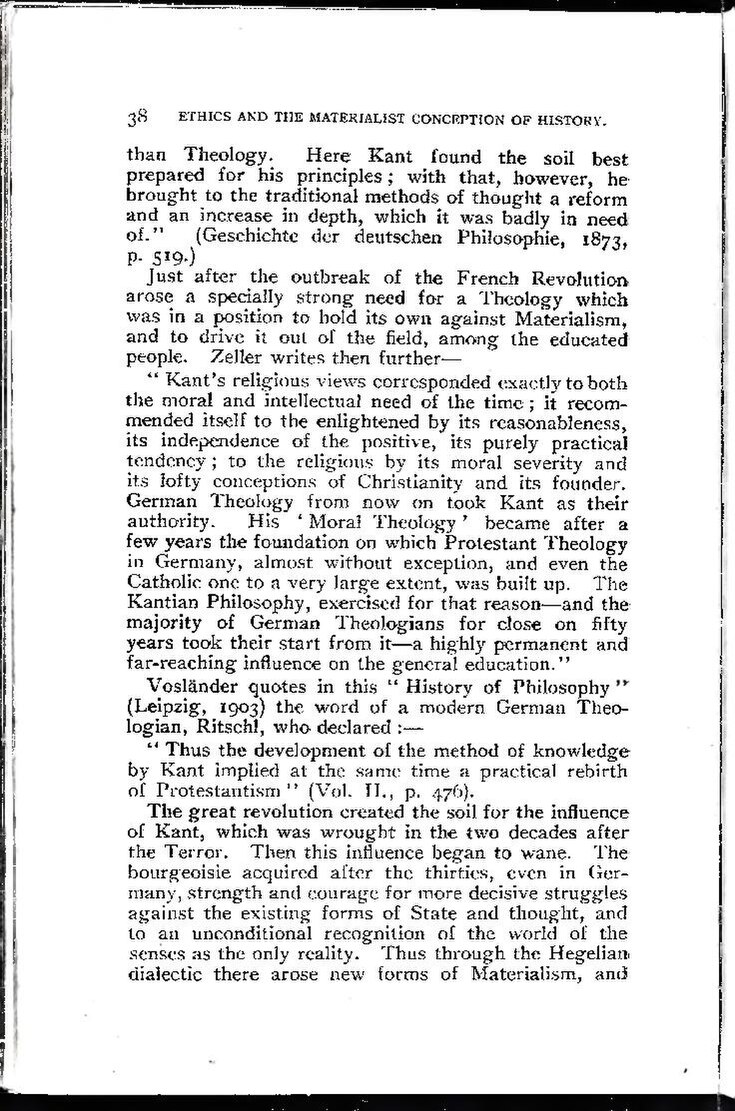than Theology. Here Kant found the soil best prepared for his principles; with that, however, he brought to the traditional methods of thought a reform and an increase in depth, which it was badly in need of." (Geschichte der deutschen Philosophie, 1873, p. 519.)
Just after the outbreak of the French Revolution arose a specially strong need for a Theology which was in a position to hold its own against Materialism, and to drive it out of the field, among the educated people. Zeller writes then further—
"Kant's religious views corresponded exactly to both the moral and intellectual need of the time; it recommended itself to the enlightened by its reasonableness, its independence of the positive, its purely practical tendency; to the religious by its moral severity and its lofty conceptions of Christianity and its founder. German Theology from now on took Kant as their authority. His 'Moral Theology' became after a few years the foundation on which Protestant Theology in Germany, almost without exception, and even the Catholic one to a very large extent, was built up. The Kantian Philosophy, exercised for that reason—and the majority of German Theologians for close on fifty years took their start from it—a highly permanent and far-reaching influence on the general education."
Vosländer quotes in this "History of Philosophy (Leipzig, 1903) the word of a modern German Theologian, Ritschl, who declared:—
"Thus the development of the method of knowledge by Kant implied at the same time a practical rebirth of Protestantism" (Vol. II., p. 476).
The great revolution created the soil for the influence of Kant, which was wrought in the two decades after the Terror. Then this influence began to wane. The bourgeoisie acquired after the thirties, even in Germany, strength and courage for more decisive struggles against the existing forms of State and thought, and to an unconditional recognition of the world of the senses as the only reality. Thus through the Hegelian dialectic there arose new forms of Materialism, and
